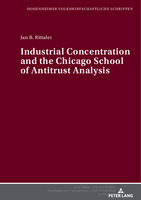Industrial Concentration and the Chicago School of Antitrust Analysis
A Critical Evaluation on the Basis of Effective Competition
Abstract
After roughly 15 years of merger control application in the Federal Republic of Germany a <I>reassessment of the significance</I> of this instrument of antitrust policy seems necessary. This is particularly so in view of the <I>reorientation of merger</I> <I>control policy in the United States</I> which has been - in its original version - the model for the German merger control system.<BR> Concerning merger control, the reorientation is characterized by the notion that the <I>structure-conduct-performance paradigm</I> which has dominated U.S. antitrust for a quarter of a century is imprecise or even incorrect and «that bigness in business does not necessarily mean badness.»<BR> This makes the fundamental question arise of whether the German merger control system is still up to date in terms of the underlying market theory and of whether the <I>German Act Against</I> <I>Restraints of Competition</I> needs a reorientation towards aspects of market conduct and performance instead of market structure by means of a Fifth Amendment.
Keywords
Analysis; Antitrust; Basis; Chicago; Competition; Concentration; Critical; Effective; Evaluation; Industrial; Rittaler; SchoolDOI
10.3726/b13907ISBN
9783631753880OCN
1083017126Publisher website
https://www.peterlang.com/Publication date and place
Bern, 2018Series
Hohenheimer volkswirtschaftliche Schriften, 11Classification
Economics
Jurisprudence and general issues


 Download
Download